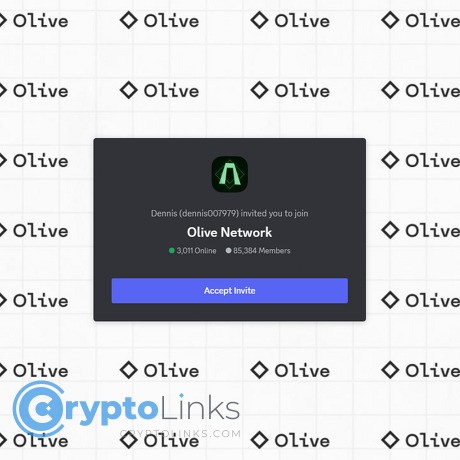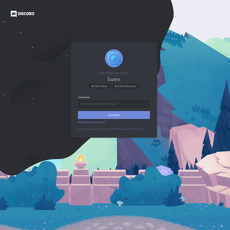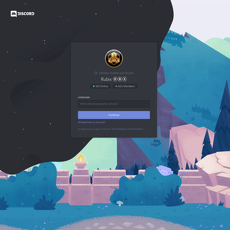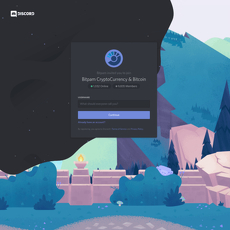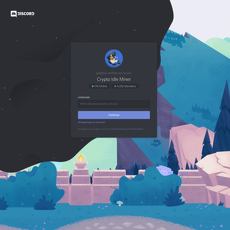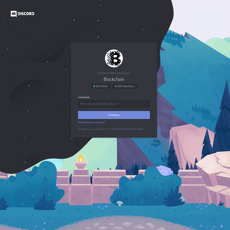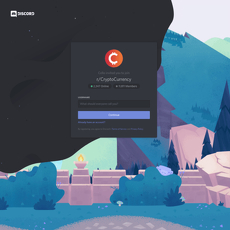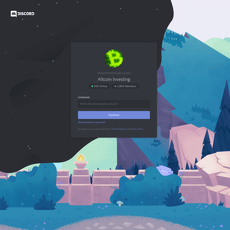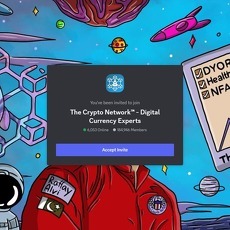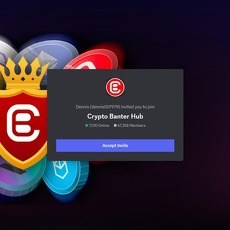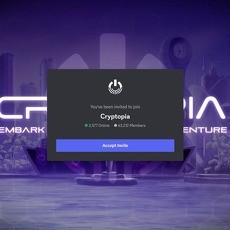Olive Network Review
Olive Network
discordapp.com
Olive Network Discord Review Guide: Everything You Need To Know
Looking for a crypto Discord that won’t waste your time or spam you with fake “alpha”? You’re in the right place.
I spend a lot of time inside crypto servers—lurking, asking questions, checking moderation, and seeing what actually helps. In this guide, I’ll show you exactly what the Olive Network Discord feels like from the inside, who it’s for, how to set it up the smart way, and whether it belongs on your daily tab list.
“If you’ve been burned by noisy rooms and sketchy DMs, this walkthrough will save you hours.”
Why most crypto Discords waste your time
Let’s be honest—too many crypto servers feel like a messy group chat with charts pasted on top. Here’s what usually goes wrong:
- Low signal, high noise: Endless memes, vague calls, and hype posts drown out actual research.
- DM traps: Random “support” or “airdrop” accounts slide into your inbox. Social engineering thrives in open servers. Chainalysis has repeatedly flagged phishing and impersonation as major scam vectors in crypto communities.
- No onboarding: New members don’t know where to start, veterans get bored, and good questions get buried.
- Shilling > substance: Threads turn into referral farms and “wen token?” spam.
- Security slip-ups: People click links from strangers, sign wallet messages they don’t understand, or trust fake mod tags.
The result? You scroll for an hour and maybe find one useful nugget—if you’re lucky.
Here’s what you’ll get from this guide
I’ll keep this practical and focused on outcomes. I’ll walk you through:
- How Olive Network structures its channels for actual utility
- Where the real signal lives (and what to mute)
- Rules, culture, and safety practices that matter
- How I personally engage to get value without burning time
If you’ve tried big-name servers and left feeling spammed or ignored, you’ll appreciate the specifics here—right down to which channels to star and which to snooze.
Why you can trust this review
I don’t do fluff, and I don’t do paid sugarcoating. When I assess a crypto Discord, I use a repeatable, boots-on-the-ground approach:
- Time-in-server: I spend days watching peak and off-peak chatter before judging quality.
- Message quality check: Are responses helpful, sourced, and on-topic—or just vibes?
- Mod responsiveness: How fast do moderators handle spam, fake links, and heated threads?
- Link hygiene: Are announcements consistent with official links? Are phishing attempts called out?
- Onboarding clarity: Can a newcomer get from invite to value in under 5 minutes?
This review reflects real usage: questions asked, support tested, events attended, and safety checks performed.
What you’ll learn in the next 5 minutes
- What Olive Network is and who it’s best for
- How to join and verify without tripping on common setup mistakes
- Key channels to follow, what to mute, and how to tailor notifications
- The culture: what flies, what doesn’t, and how to get good answers fast
- Pros and cons—so you can decide if it belongs on your daily rotation
- Rapid-fire FAQ to stay safe and get moving
If you’re ready to see whether the Olive Network Discord is the rare crypto server that respects your time, let’s keep going—what exactly is Olive Network, and who is it built for? The answer might not be what you expect.
What is Olive Network and who is it for?
Picture a crypto Discord where the goal isn’t to spam charts or chase clout, but to make you smarter every time you check in. That’s the promise here: practical insights, curated threads, and a community that actually answers questions without flexing. Less hype, more help.
“Come for the alpha, stay for the people.”
I see it as a daily home base for web3 folks who want the signal without the mess. It blends research, market context, learning resources, and support so you don’t have to hop across five different servers to get what you need.
Quick overview
Expect a clean layout and channels that do exactly what they say:
- Announcements: High-signal updates and official info so you’re not chasing rumors across random threads.
- Market talk: Smart conversation about catalysts, liquidity shifts, funding rates, and on-chain hints that actually matter to entries and exits.
- Research: Pinned threads with frameworks (tokenomics checklists, risk matrices, sector primers) and links to dashboards/tools you’ll use more than once.
- Learning hub: Walkthroughs and how-tos for DeFi, NFTs, L2s, security basics, and tooling—great for leveling up without getting roasted.
- Support: Real help when something breaks or looks suspicious, plus feedback channels that don’t feel like a black hole.
A typical day might look like this: a crisp announcement on a feature or event, a market thread unpacking an overnight move with a couple of high-effort charts, and a research post linking to a new on-chain dashboard with context on how to interpret it. It’s the kind of cadence that makes you better at crypto without eating your whole day.
Why this structure works: Good information architecture reduces cognitive load and helps people find what they need faster—a known pattern in UX research (see Nielsen Norman Group on IA). Add consistent moderation and you get a community that stays useful month after month. There’s even academic backing that active enforcement reduces harmful noise (for example, research on Reddit’s 2015 enforcement actions in PLOS ONE).
Who should join
If any of these sound like you, you’ll probably feel right at home:
- Active traders who want thoughtful market context instead of “rush now” pings.
- Researchers and analysts who prefer threads with sources, dashboards, and clear takeaways.
- Builders/founders looking for candid feedback and a receptive crowd for product questions.
- Newcomers who want to ask “basic” questions without getting flamed. The learning hub makes it easy to ramp.
- Long-term investors who care about fundamentals, macro, and narrative rotation more than screenshot PnL.
Real examples you’ll often see:
- A member sharing a token unlock schedule with context on supply overhang and mitigation ideas.
- Someone posting an on-chain flow (e.g., exchange inflows/outflows) plus a dashboard link and a one-paragraph takeaway.
- A short how-to on using a new L2 bridge safely, with fee estimates and common gotchas.
It’s less “copy this call” and more “here’s the reasoning so you can make your own call.” That’s the edge.
Who shouldn’t join
- If you only want one-word “signals,” this won’t scratch the itch.
- If your plan is to shill low-effort links or paste your ref code everywhere, you’ll hit a wall fast.
- If you treat Discord like a 24/7 alert terminal, you’ll be happier in a pure signals room.
There’s a shared belief here that good discussion beats hot takes. If that slows you down, it’s probably not your spot.
What makes it different
A few things stand out:
- Clear channel purpose: You always know where to ask, share, or browse. That alone cuts scrolling time.
- Active, visible moderation: Keeps threads useful and friendly. For context, Pew Research reports that a large share of people experience online harassment; communities that actually enforce rules feel different.
- Curated resources: Pinned posts, recap notes, and tool lists that don’t go stale overnight.
- Culture of explanation: Members back claims with charts, links, or at least a short framework. No mystical “trust me” calls.
There’s an emotional piece too. Crypto can feel chaotic—prices swing, narratives flip, scams lurk. Spaces like this give you a steady rhythm and people who’ve got your back. When conversations aim to make you think instead of panic, your decisions get calmer—and usually better.
Ready to get in without the usual Discord chaos? In the next section, I’ll show you exactly how to join, pick the right roles, and set notifications so you get value on day one without getting spammed. Want the 2-minute setup that I use?
How to join and get set up the right way
You want signal, not chaos. Here’s how I join the Olive Network Discord in under five minutes and set it up so I get real value without constant pings.
“Protect your attention like it’s capital—because in crypto, it is.”
Step-by-step join flow
- Hit the invite. If you’re on mobile, open it in the Discord app for a smoother path.
- Accept the rules: Most servers lock the rest until you click “Accept” in a #rules or #welcome channel. Read them—enforcement matters here.
- Complete verification: Expect a simple captcha or a reaction-role gate (click an emoji to unlock channels). If you don’t see channels after 60 seconds, refresh the client or re-open the app.
- Scan the welcome and FAQ: Look for channels typically named #start-here, #faq, or #server-map. Two minutes here saves hours later.
Tip: On desktop, press Ctrl/Cmd+K and type “faq” or “rules” to jump fast. If verification stalls, head to a visible #support channel and ping a mod politely.
Pick the right roles and notifications
Most people quit good servers because notifications wear them down. Research from attention expert Gloria Mark shows it can take roughly 20+ minutes to refocus after an interruption—so we set Discord to work for us, not against us.
- Grab roles that match what you want: If the server offers reaction roles (usually in #roles or #start-here), pick only what you’ll actually follow.
Example: Select roles for “Announcements,” “Events,” and one interest (like DeFi, NFTs, or Research) instead of everything. - Dial in server-wide notifications: Right-click (or long-press) the Olive Network server icon → Notification Settings → set to Only @mentions. Enable Suppress @everyone and @here. This kills spam-style blasts without missing direct pings.
- Mute non-essentials: Right-click busy channels you don’t need (memes, general off-topic) → Mute Channel → Until I Turn It Back On. You can still visit anytime.
- Follow key updates: In announcement-style channels, click the bell icon and choose “All Messages” if you want to catch time-sensitive posts (events, releases).
- Track important posts: Use Mark Unread on messages you want to revisit, and check the channel Pins for curated highlights.
Why this works: Lean roles + filtered notifications = fewer context switches. You’ll actually stick around and learn instead of muting the whole server out of frustration.
Introduce yourself the smart way
Your first message sets the tone. Keep it short, specific, and easy for helpful people to route you to the right places.
- Use a simple template:
“Hey all, I’m Sam. Interested in DeFi tooling and L2 ecosystems. I can contribute research and docs. Looking for good threads on on-chain analytics—what channels should I follow?” - Share one goal and one ask: People can’t help if they don’t know what you want. Ask a clear, single question to start.
- Be human: Mention a tool you use (Nansen, Dune, TradingView) or a recent topic you’re exploring. It attracts the right replies.
Pro move: Thread your intro under any ongoing topic. Threads keep conversations tidy and make your question easier to find later.
Security setup from day one
Discord is great, but DMs attract scammers. A few toggles will save you a lot of pain. Security teams (including Google’s) have shown that simple steps like two-factor authentication drastically reduce account takeovers. Do these immediately:
- Disable DMs from server members: User Settings → Privacy & Safety → Server Privacy Defaults → toggle off “Allow direct messages from server members.” If you need DMs later, re-enable per server.
- Enable 2FA with an authenticator app: User Settings → My Account → Enable Two-Factor Auth. Avoid SMS when possible; use an app like Authy or Google Authenticator.
- Never connect wallets from random links: Only use links posted in official announcement channels or verified documentation. Typosquats are common—double-check the domain.
- Watch for fake support: Real staff have visible role badges. If someone DMs you first, assume it’s fake—even if the avatar and name look official.
- Don’t scan random QR codes or sign unknown messages: If a prompt feels urgent, slow down. Ask a mod publicly before doing anything irreversible.
Common scam pattern to ignore: “We noticed an issue on your wallet. Please verify at [link]. I’m from support.” Real teams don’t DM first and they never ask for seed phrases. Ever.
That’s your foundation. Next up, want a quick map of the best Olive Network Discord channels to watch—and exactly how I use each one to get real edge without wasting time?
Inside the server: channels, features, and how to use them
“Clarity beats noise. In crypto, the edge isn’t more info—it’s better filtration.”
If you’ve ever opened a crypto server and felt your brain turn into a ticker tape, you’ll like how this one is laid out. I treat it like a dashboard: five core areas, each with a job. Here’s how I use them to stay informed without getting sucked into chaos.
Announcements and updates
This is the heartbeat. Think official news, releases, and time-sensitive notices. I give it a 60-second scan each morning and before New York close.
- Set notifications just for this channel: Right-click the channel → Notification settings → All Messages. Keep the rest of the server on “Only @mentions.”
- Bookmark the important stuff: Click the bookmark icon on key posts (like contract changes or maintenance windows). Your future self will thank you.
- Use “Mark as Unread” as a to-do: Great for posts you want to act on later (like event RSVPs).
- If it’s an Announcement channel: Hit Follow to mirror updates to a private server or DM with yourself—handy if you manage a team.
Real example workflow: new feature announcement lands → I bookmark it → add the related event to my calendar → paste the official link into my notes so I never click a spoofed version later.
Market chat and research
This is where the signal lives—charts, on-chain tidbits, macro reads, and thoughtful back-and-forth. Treat it like a good trading floor: ask tight questions, add context, use threads.
- Get fast answers by being specific: “4H BTC lost 200EMA; invalidation at 64.2k—am I missing a higher-timeframe level?” beats “Thoughts on BTC?”
- Use threads to keep ideas clean: Start a thread for each topic (e.g., “ETH spot flows this week”). You’ll get better replies and you won’t lose them to the scroll.
- Search like a pro: Use the Discord search bar with operators:
- in: to target a channel (e.g., in:#market-chat)
- has: to filter posts with links or files (e.g., has:link)
- from: to pull up a specific analyst’s posts
- Share receipts, not vibes: Screenshots, TradingView links, on-chain dashboards (with a sentence on why it matters) get the best engagement.
There’s a well-known pattern in online communities—Nielsen Norman Group’s 90-9-1 rule: most people lurk, a few contribute, and a tiny slice creates. Be the helpful 1%. You’ll build social capital here fast.
Learning and how-tos
This is your skill-up lane. Pinned guides, walkthroughs, and tool recommendations range from beginner basics to more advanced setups.
- Start with pins: Work through the pinned messages before you ask. It trims repeat questions and helps you ask smarter follow-ups.
- Bookmark tutorials you’ll reuse: Wallet hygiene, bridging best practices, tax reporting basics—save them once, reference forever.
- Ask “step-zero” questions: If a guide assumes a step you don’t know, ask for that missing piece. Those questions often produce new, better guides for everyone.
- Keep a tighter scope: “Best method to track per-chain PnL without spreadsheets?” gets you real tools and workflows; “How do I crypto?” doesn’t.
Research on Q&A communities has shown that specific, contextualized questions attract faster and higher-quality responses. Crypto is no different—precision is your accelerant.
Events and AMAs
Workshops, community calls, and the occasional AMA are where the room gets to think aloud together. These are worth catching live because the best nuggets rarely make it to Twitter.
- Hit “Interested” on Events: Discord will nudge you before start time. If you live on Calendar, add it there too.
- Prep two questions in advance: One specific (“What’s your risk framework for low-liquidity pairs?”) and one strategic (“What would change your thesis this quarter?”).
- After the call: Look for recordings or notes in pins. If you missed it, scan the thread for summaries from regulars.
Pro tip: If you’re new, volunteer to summarize an event in 5 bullets. It’s the fastest way to plug into the core of any server and people will start looping you into the good threads.
Support and feedback
Bugs, account issues, suggestions—this is where they get triaged. Healthy servers handle this quickly and transparently; it’s a great signal of long-term reliability.
- Use the template: If there’s a ticket system, include device, OS, screenshots, and steps to reproduce. You’ll skip the back-and-forth and get help faster.
- Tag correctly, never spam: One clear post > three pings. Mods notice the people who respect the queue.
- Feedback with context: “The research channel could use threads by asset; happy to help set up tags” gets traction; “This sucks” doesn’t.
I measure a server by how it handles support at 2 a.m. If you see quick, helpful replies and clear follow-ups, you’ve probably found a home worth investing time in.
Now, channels are only half the story. The other half? The rules and culture that keep them usable—and the safety habits that stop scammers before they get anywhere near you. Want the short list I rely on every day so I never get burned again, even during peak hype?
Rules, culture, and safety: what to know before you chat
Healthy crypto servers don’t happen by accident—they’re engineered. Olive Network keeps the room high-signal with simple, enforced rules and a safety-first culture that respects your time and your wallet. Here’s how it actually feels when you’re inside and typing.
“I treat every message like a trade: verify the setup, control the risk, then commit.”
Rules that keep things clean
The playbook is short, clear, and consistently enforced. That’s why the chat stays useful instead of turning into a megaphone for clout-chasing.
- No spam or mass tags. If you blast @everyone or spray low-effort memes, you’ll get a warning, then a timeout. Good for focus, great for credibility.
- No self-promo without permission. Want to share a tool, thread, or newsletter? Ask a mod first or post in the designated channel if one exists. Example: sharing “Here’s my referral link, instant 100x” = removed; sharing “I built a free DEX fee tracker; here’s the Github” = likely fine if approved.
- Stay on-topic and use threads. Chart breakdowns go in market chat with a thread for follow-ups. Support questions belong in support. It keeps the main feed readable when things heat up.
- Source your claims. Dropping “alpha”? Add links, on-chain tx hashes, or screenshots. “Trust me bro” gets ignored; receipts get engagement.
- Zero tolerance for malicious links. Anything sketchy is nuked fast. Repeat offenders don’t get second chances.
In practice, that means your thoughtful messages don’t get buried under noise—and when you ask for help, real people actually see it.
Mod quality and responsiveness
Moderators here aren’t invisible. You’ll see them steering threads, gating bad links, and de-escalating “winters vs summers” market fights before they waste everyone’s time.
- Easy staff verification. Staff carry clear role tags and color-coded names—always click a profile and confirm the role badge before trusting a “helper.”
- Proactive protection. Link scanners, read-only mode during raids, and slow mode when volatility turns chat into a firehose. You feel the guardrails without feeling policed.
- Support that actually helps. When a user posted a shortened “airdrop claim” link, a mod removed it, explained why it was risky, and shared safe verification steps. That kind of coaching makes the whole server sharper.
If you’ve read Discord’s own safety guidelines (Discord Safety Center), you’ll recognize a lot of best practices applied in real time here.
Scam watch: how to protect yourself here
Security is a habit, not a banner. Olive Network’s culture backs that up, and you should too. Social engineering is still the number one entry point for losses according to industry reports like Chainalysis’ Crypto Crime analysis and the FBI’s IC3—meaning the message is the malware.
- Treat DMs as hostile by default. Disable server-member DMs: right-click the server icon → Privacy Settings → toggle off “Allow direct messages.” Genuine help stays in public channels.
- Trust official channels only. Announcements and pinned posts are your source of truth. If a link isn’t in an official Olive channel, assume it’s bait until a mod says otherwise.
- Check the sender’s role and history. Click the profile. No staff role? New join? Similar name to a mod with a weird Unicode character? That’s a no.
- Don’t sign what you don’t understand. Wallet prompts like Permit, setApprovalForAll, or “unlimited spend” are common scam vectors. If you weren’t trying to approve anything, cancel. Use tools like revoke.cash to review and revoke allowances.
- Use a burner and a hardware wallet. Hot wallet for testing. Cold wallet for value. Move slow when anything feels urgent—urgency is the scammer’s favorite weapon.
- Scan unknown links. When in doubt, ask a mod or run URLs through a scanner like urlscan.io. Avoid URL shorteners and don’t connect a wallet to a site you’ve never vetted.
If you want data to support the paranoia: the FBI’s IC3 consistently reports investment fraud as the top category for online losses, and Chainalysis highlights how social engineering keeps evolving. The pattern is the same: urgency + authority + private channel. Break that triangle and you’re already safer.
Useful links if you’re new to Discord safety:
- Discord Safety Center
- FBI IC3 Annual Report
- Chainalysis Crypto Crime resources
Red flags to report
Spot it, don’t debate it—report and move on. Mods move fast when the community does its part.
- Brand-new accounts pushing “opportunities.” Especially anything off-platform (WhatsApp, Telegram, “private group”).
- Requests for seed phrases or remote access. No legit staff member will ask for these—ever.
- “Support” DMs after you ask a question. Classic impersonation play. Real support stays in public threads, with visible staff roles.
- Time-limited “giveaways” that require a wallet signature. If it sounds like free money, it’s probably an approval trap.
- Executable files or QR codes from strangers. Especially .exe, .scr, or “invoice.pdf” that isn’t actually a PDF.
How to report quickly:
- Right-click the message → “Copy Message Link” and post it in the server’s support/report channel with a short note.
- On mobile, long-press → “Copy Message Link.”
- Don’t engage. The fastest way to kill a scam is to starve it of attention.
Clean rooms attract serious people. That’s the real edge. Now here’s the million-satoshi question: does this culture translate into daily value you can actually use—or is it just good housekeeping? Let’s weigh the pros and cons next.
Value check: pros, cons, and who gets the most from this server
The good
I look for three things in a crypto Discord: structure, moderation, and signal. Olive Network checks all three boxes and adds helpful events on top.
- Structure that cuts noise: Channels are clearly labeled and pinned posts do the heavy lifting. I can scan announcements, then jump straight into market chat or threads without wading through junk.
- Moderation that actually moderates: Sketchy links get flagged fast, and off-topic debates don’t hijack the main channels. That keeps conversations useful and makes it easier to ask beginner-to-advanced questions without getting buried.
- Active, practical discussions: The market chat is where I’ve seen the best back-and-forth—chart talk, on-chain cues, and timely macro notes. Ask a specific question, and you’ll usually get a response while the topic is still relevant.
- Events worth your calendar: AMAs, community calls, and workshops pop up on a regular cadence. When you combine a solid event rhythm with a focused chat, you get momentum instead of random hype.
- Lower “time tax” than most crypto servers: Because channels stay on-topic and threads are used properly, it’s easy to catch up after a few hours away instead of scrolling endlessly.
Most days I only need two tabs: Announcements and Market Chat. Everything else is optional—but nice to have.
The not-so-good
There’s no perfect server. Here’s where you might feel friction.
- Fast scroll at peak hours: When markets move, the feed can fly. If you don’t use threads or mute non-essentials, you’ll miss replies.
- Not a “signals” pit: If you want spoon-fed trades or copy-trade alerts, you won’t find them here—and that’s by design.
- Time-zone gaps: Depending on where you live, some channels are quieter during your morning or late night. Following threads helps keep context.
Tips to get value fast
Here’s how I squeeze consistent signal out of Olive Network without living in Discord.
- Tune notifications like a pro: Set Announcements and Events to alerts; set everything else to “Only @mentions.” You’ll catch the important stuff without dopamine doomscrolls.
- Follow threads, don’t chase the feed: When a topic interests you, click “Follow Thread.” That pulls updates into your inbox and keeps context intact.
- Ask questions the right way: Use a simple formula—context, what you tried, specific ask. Example: “Looking at ETH L2 flows on-chain—used Dune X query, can’t reconcile bridging spikes vs. active users. Any dashboards I’m missing?” Focused questions get focused answers.
- Use search filters: In Discord search, try in:#market-chat has:link or from:@modname to surface the good stuff quickly.
- Pin and summarize: Pin useful posts and write a 2–3 line personal summary in your notes. You’ll retain more and stop re-learning the same playbook every quarter.
- Share what you’re building or tracking: People respond to skin in the game. Post a chart, a snippet of research, or a tool you actually use—you’ll unlock better conversations.
- Lock in safety habits: Keep DMs off, verify links only from Announcements, and ask a mod if something smells urgent. Simple habits = fewer headaches.
Who gets the most from this server
- Curious learners: If you want to level up without feeling lost, the mix of guides, threads, and responsive members is a win.
- Analysts and part-time traders: You’ll appreciate the signal-to-noise in market chat and the way threads preserve context during volatility.
- Builders and power users: Feedback channels are actually read, and you can surface bugs, product ideas, or integrations without shouting into the void.
Alternatives and how it fits your stack
If you already camp in niche servers (DeFi-only, NFT-only, tooling-specific), Olive Network works as your generalist headquarters—the place you check daily for announcements, broad market context, and events. Pair it with:
- Your niche hubs: Keep the deep dives in specialized servers, use Olive to sanity-check sentiment and catch cross-vertical trends.
- Your news and dashboards: Use Olive for human context around the numbers you’re already watching.
- Your calendar: Add events so you actually show up for the AMAs and workshops that move you forward.
If you’re wondering about cost, verification, and how to stay safe while you’re browsing the Olive Network Discord, want the 30-second answers next—or prefer a quick checklist you can copy?
FAQ: quick answers to common questions
How do I join a good Discord server?
I look for three things: clear rules, active mods, and focused channels. If those are present, you’ll get value without the chaos. Smaller or mid-sized communities usually give you better replies and fewer spam waves.
- Be intentional: introduce yourself with what you’re into—DeFi, NFTs, research, or trading.
- Mute aggressively: keep just announcements, events, and your favorite topic channels on.
- Ask specific questions: “Any on-chain data for SOL DEX volume this week?” beats “Thoughts on SOL?”
Sample intro you can steal:
“Hey folks—mostly into on-chain analytics and stablecoin strategy. Looking for good tools for L2 DEX tracking. Happy to share dashboards in return.”
Is Olive Network free and how do I verify?
Yes, joining is free. You’ll pass a quick captcha or reaction-role check, then you’re in. If anything glitches, drop a clear note in the support channel with a screenshot and your timezone so mods can help fast.
How do I stay safe from scams here?
The biggest risk on any crypto Discord is social engineering—usually in DMs or via lookalike links. Industry reports consistently show phishing and impostor support as top attack vectors, so assume urgency = red flag.
- Turn off DMs from server members (User Settings → Privacy & Safety).
- Trust only official links posted in announcements; avoid links dropped by new accounts.
- Never share seed phrases, private keys, or recovery codes—no legit staff will ask.
- Verify roles: real staff have visible role badges; scammers won’t.
- Test suspicious URLs with a browser in strict mode and a burner wallet if you must check something.
Quick rule: if a message feels urgent or scarce (“last chance”), slow down. Ask a mod in the support channel to confirm.
What kind of content should I expect daily?
Think useful, not noisy. On a typical day I see:
- Announcements: project updates, releases, maintenance notes.
- Market chat: charts, on-chain snapshots, macro notes.
- Research threads: links to reports, dashboards, and tool walkthroughs.
- Help requests: quick Q&A where you’ll usually get a reply fast.
Pro tip: star key messages you want to revisit and use thread view to keep topics tidy—especially during peak hours.
Are there events or AMAs?
Yes—periodic calls, workshops, and AMAs. Turn on notifications for the events channel and click “Interested” so it pings your calendar. If you miss one, check for recordings or summaries in the resources or recap threads.
Final verdict
If you want a clean, useful crypto Discord with real moderation and actual conversation, this one earns a spot in your daily rotation. Join via the invite, set roles, mute the noise, and ask focused questions. You’ll get steady value—without the usual Discord chaos.
CryptoLinks.com does not endorse, promote, or associate with Discord servers that offer or imply unrealistic returns through potentially unethical practices. Our mission remains to guide the community toward safe, informed, and ethical participation in the cryptocurrency space. We urge our readers and the wider crypto community to remain vigilant, to conduct thorough research, and to always consider the broader implications of their investment choices.

